

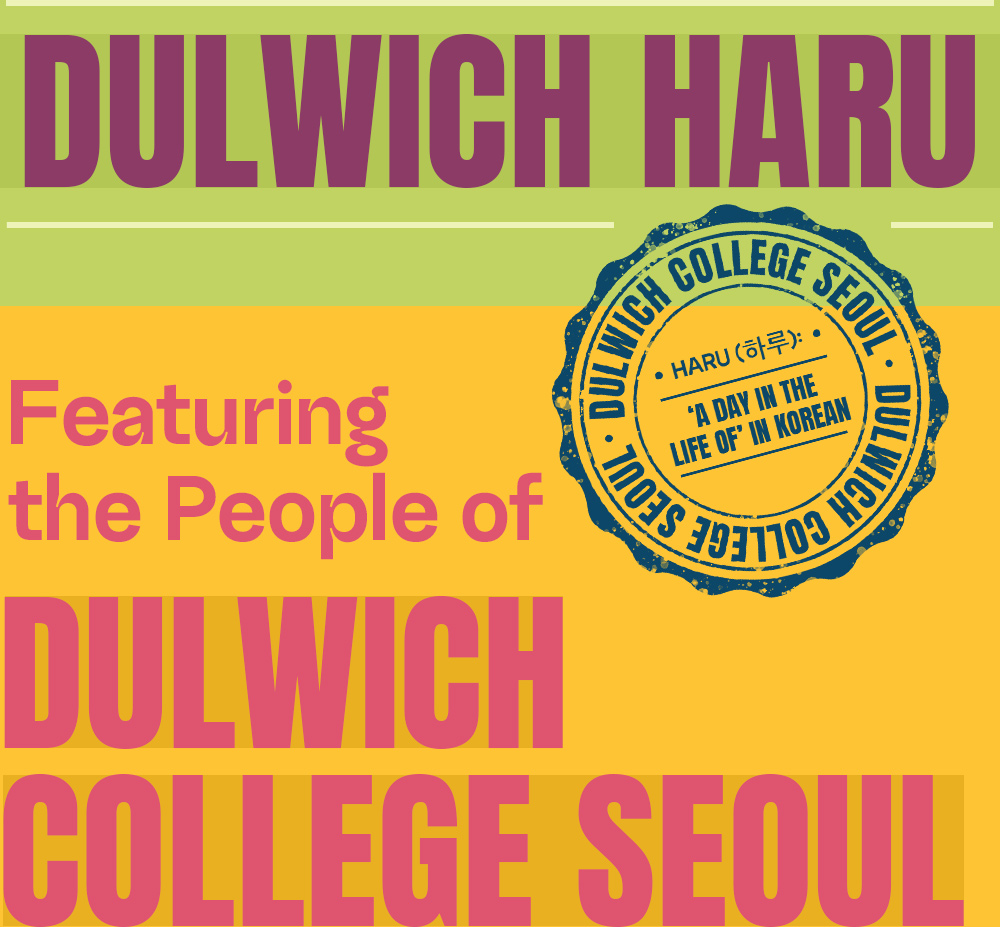
IN THIS EDITION
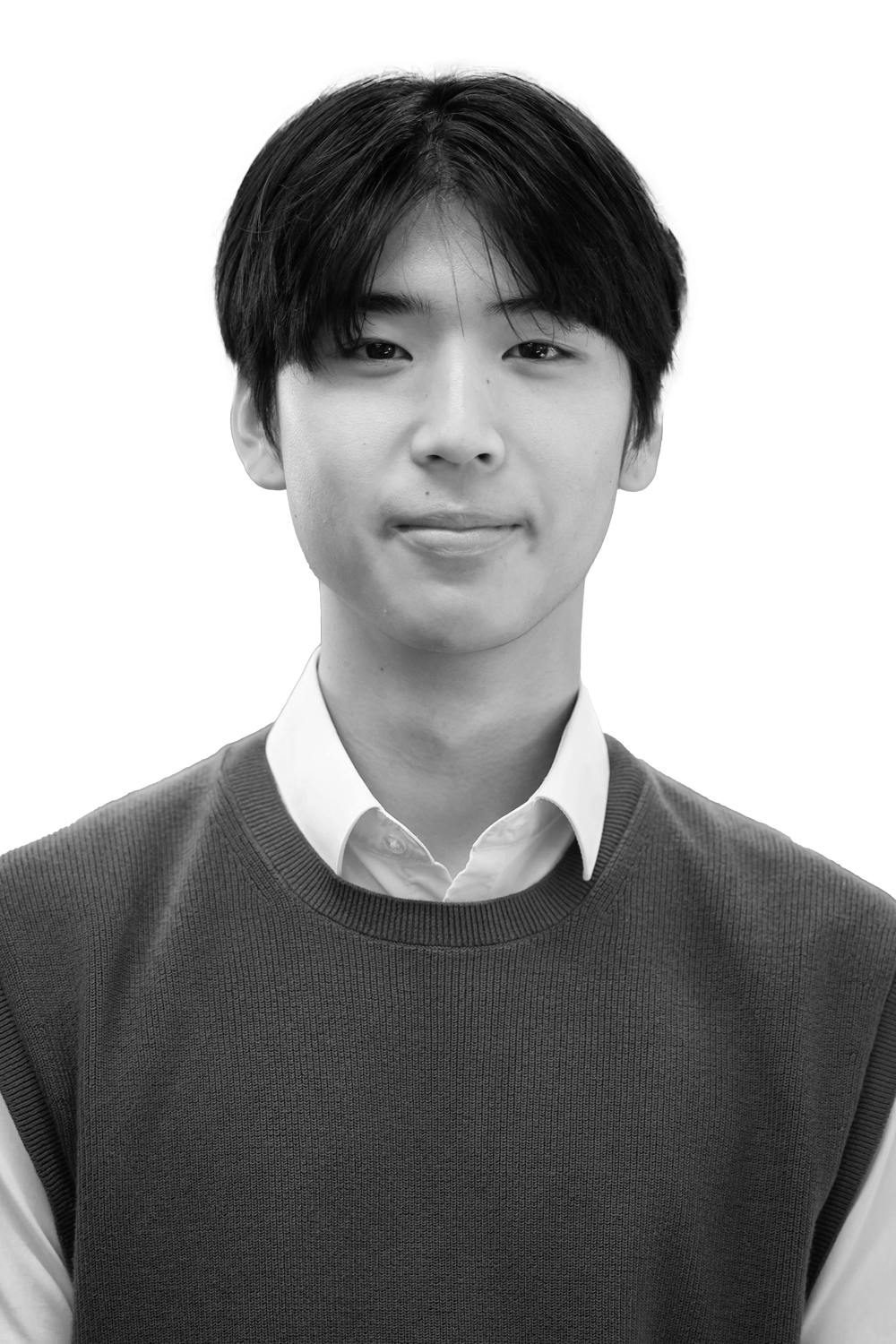
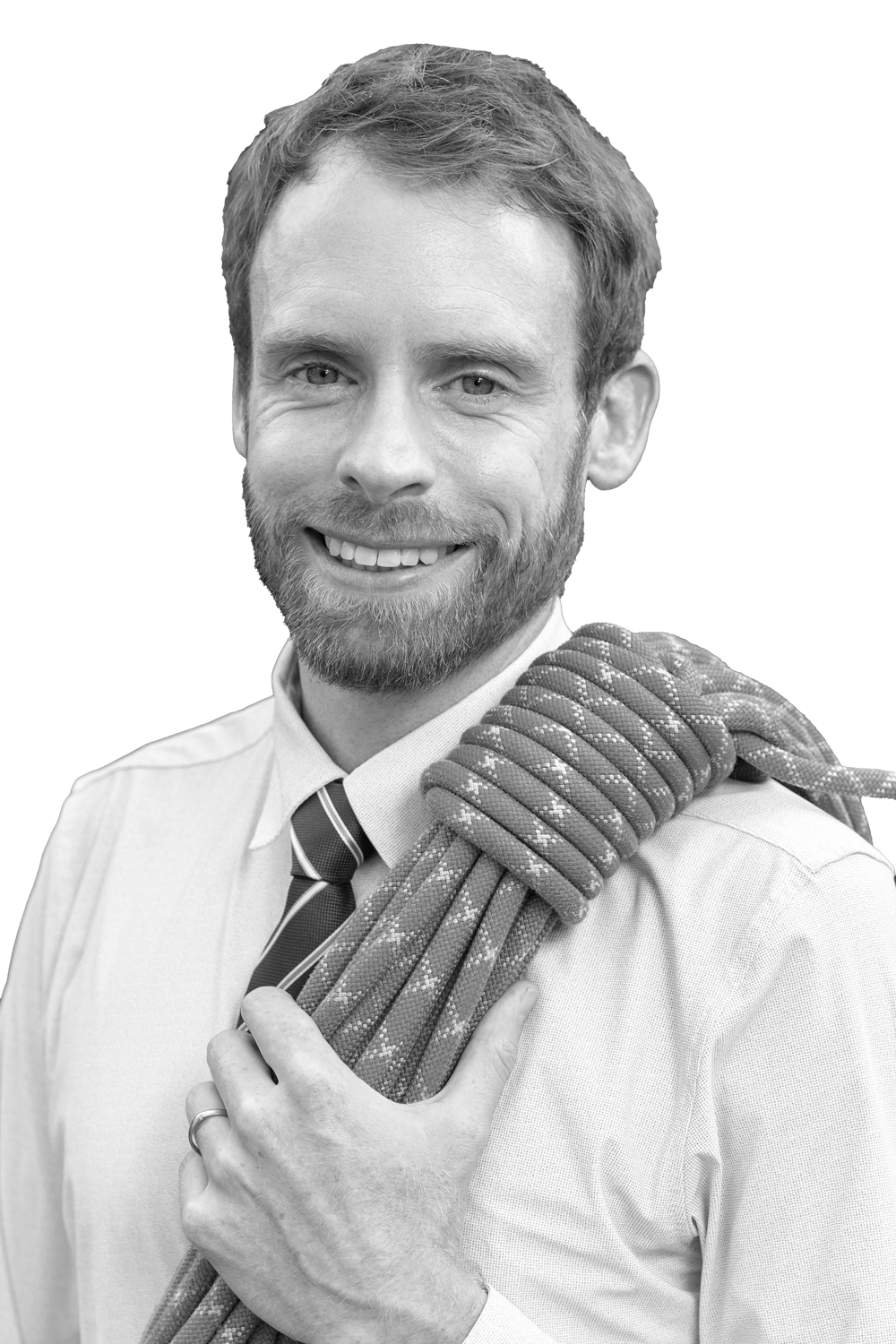
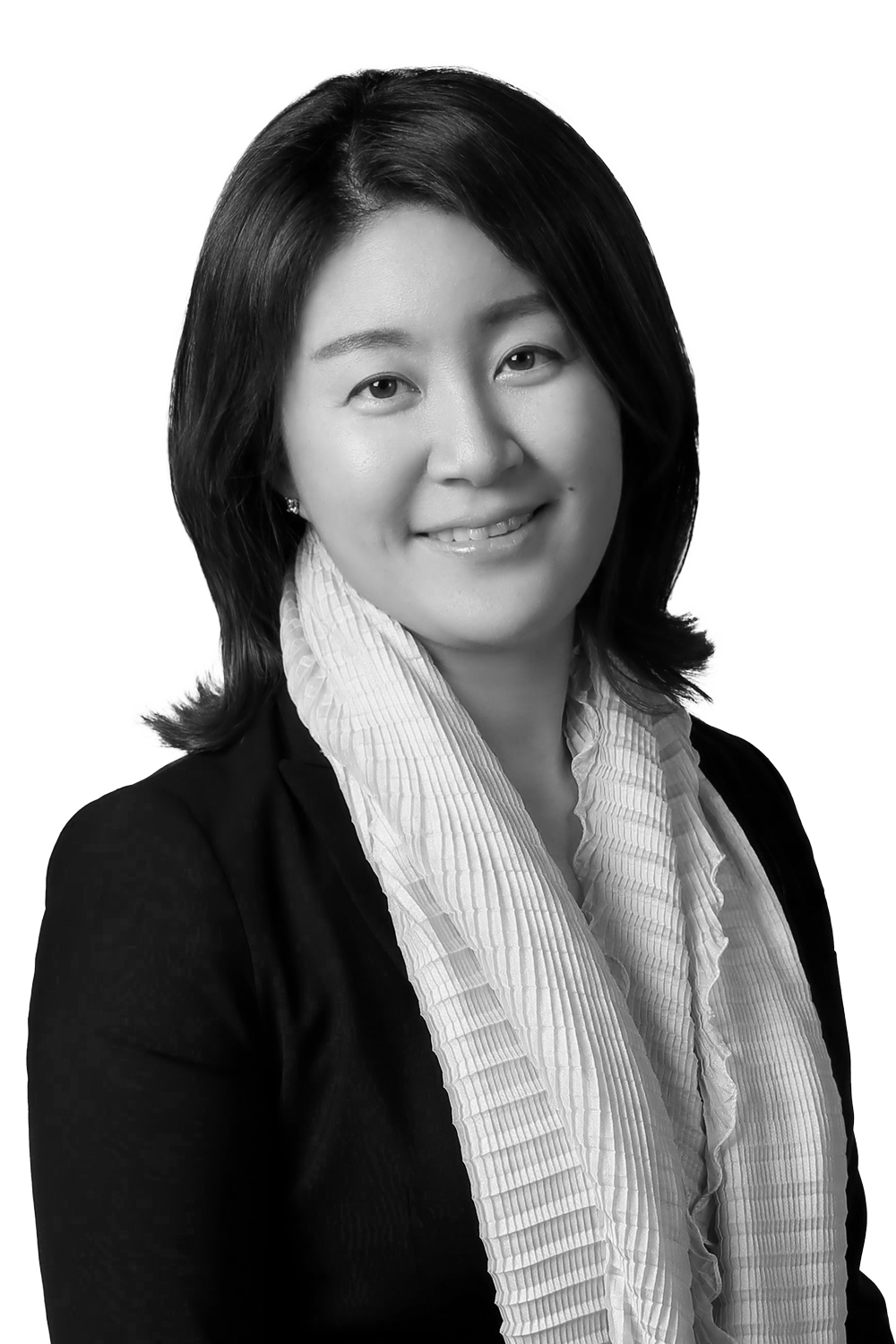
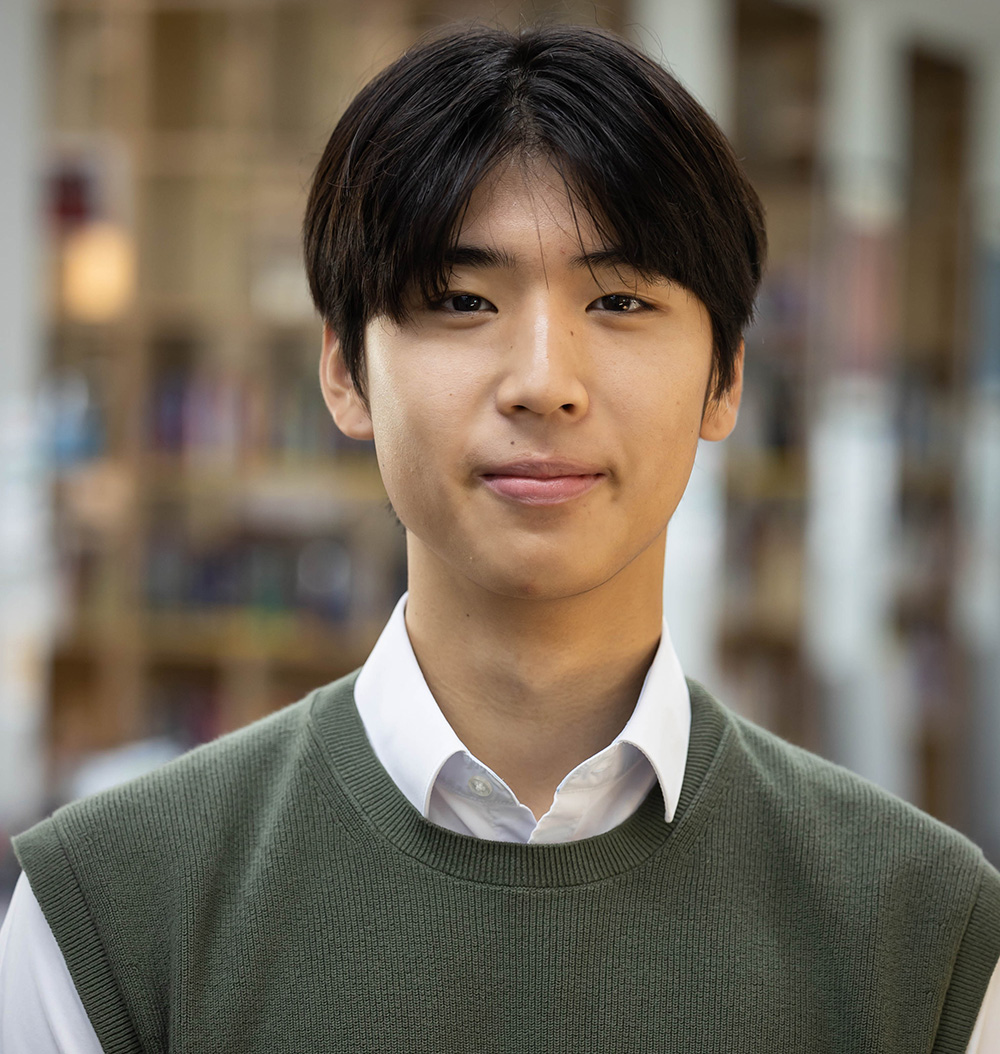
I am currently in Year 12. I was born in Korea and moved to Germany when I was two years old, living there for 13 years. In 2021, I returned to Korea and joined Dulwich College Seoul. Joining Dulwich at the age of 15 during the COVID-19 pandemic was a unique experience. My first day was online due to quarantine restrictions, so I initially met my classmates through Zoom. After two weeks of online classes, I finally met them in person, though we had to wear masks. Despite these challenges, I made two great friends who helped me navigate the school, and they remain my friends to this day.
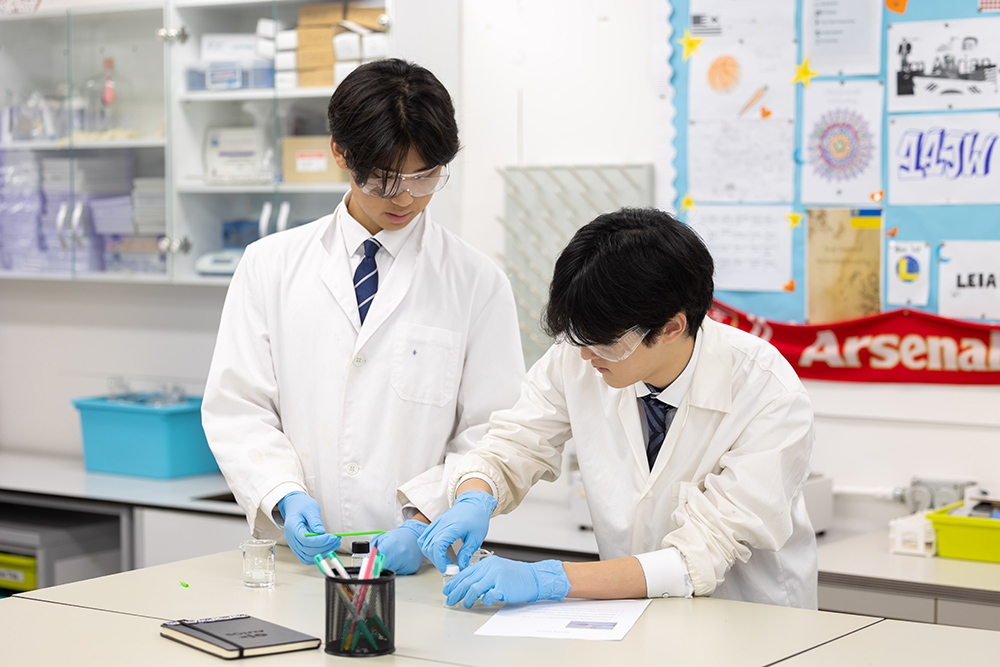
Growing up in Germany is one of my core memories. I was immersed in German culture from the age of two. For example, in Germany, we would always swim in the river after school. There was never any pressure to study hard; instead, we spent a lot of time in nature with friends. This experience influenced my perspective, making me believe that life and learning should not be stressful, and that childhood should be filled with fun and memorable moments. In Korea, the academic environment is rigorous, but I believe my time in Germany taught me the importance of a balanced life. Dulwich, however, provides a positive environment where young students can have fun while learning.
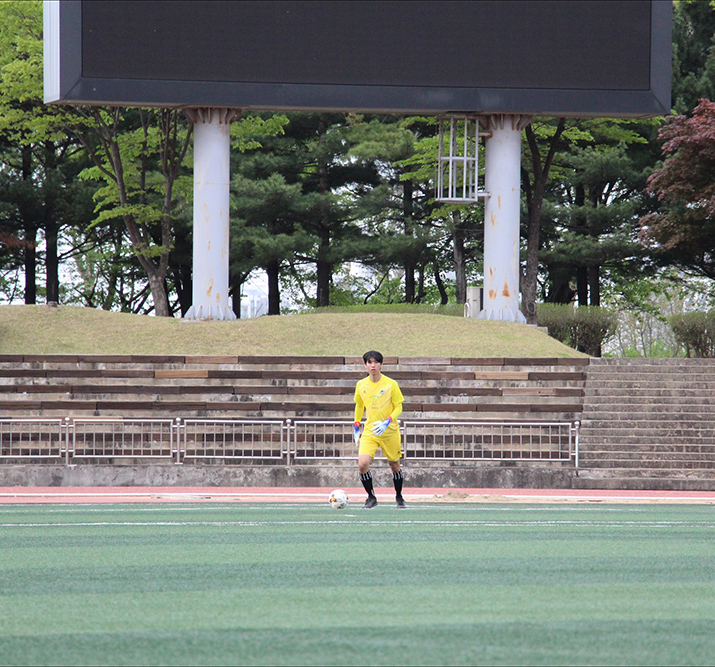
I speak Korean at home, and in elementary school, I attended a bilingual school (German and English). Later, I moved to a public German school where I really improved my German. Now, at Dulwich, I speak English, making me trilingual. This fluency in three languages has opened many doors for me academically, allowing me to apply to universities in Germany, English-speaking countries, Hong Kong, Singapore, and the US.
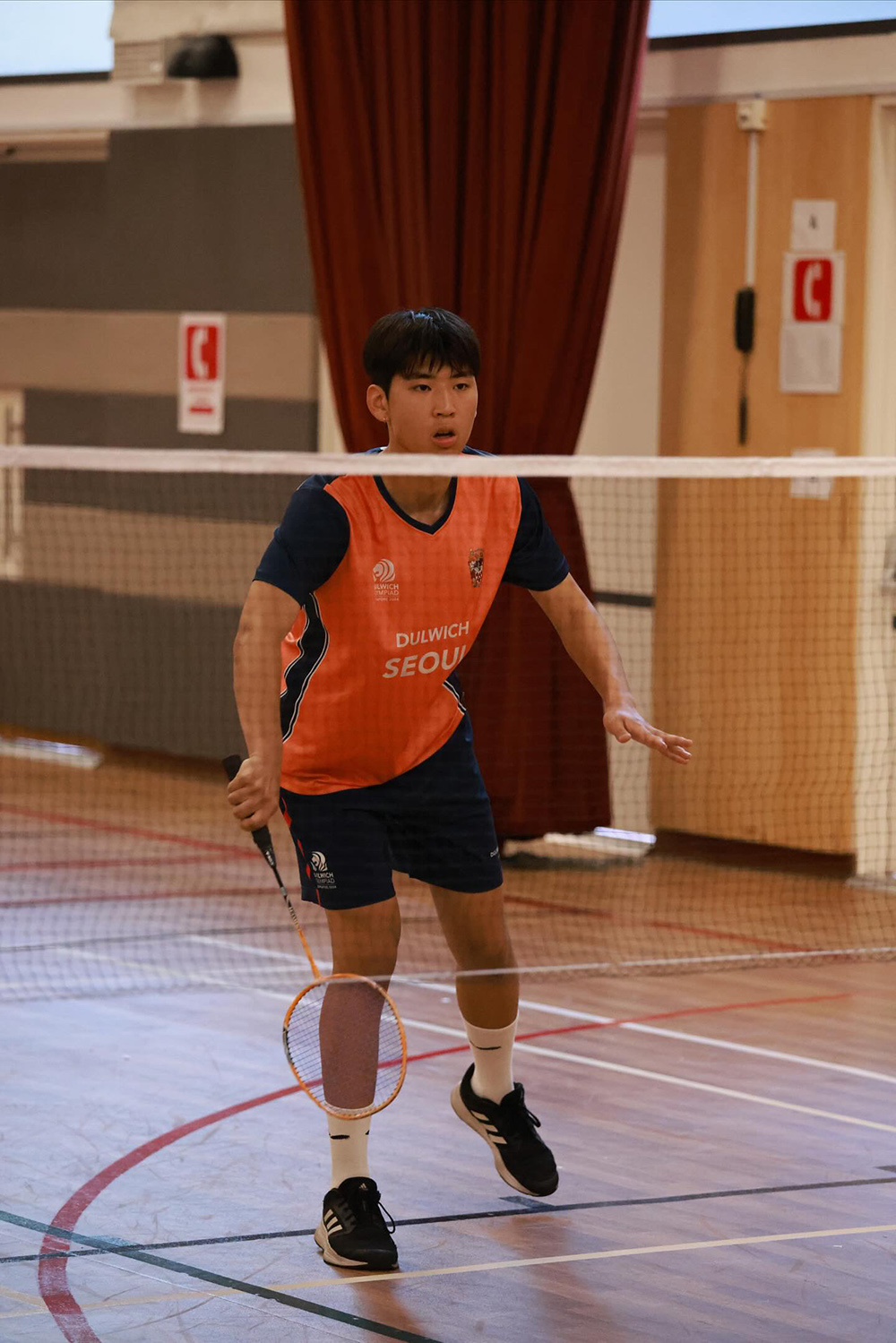
My favourite subjects are the sciences, particularly Chemistry, and I am confident in Physics. I plan to apply for Mechanical Engineering at university, but I am also considering Chemistry, specifically medicinal chemistry. My interest in science started during my IGCSE days, thanks to my teachers, Mr Wright and Mr. Watling, who encouraged me to delve deeper into the subject.
During IGCSE, Mr. Watling encouraged me to explore science more deeply. For example, when I had finished my tests, he would bring me the IB textbook and suggest specific parts to read. His guidance and encouragement to delve deeper into chemistry gave me the motivation and inspiration to pursue the subject further. His support played a significant role in sparking my interest and helping me realize my potential in the sciences.
The IB programme is very challenging and requires you to think beyond the curriculum. Extended Essays (EEs) and Internal Assessments (IAs) encourage independent research, while Theory of Knowledge (TOK) fosters critical thinking. For example, our recent Theory of Knowledge (TOK) exhibition explored whether bias is inevitable in the production of knowledge, pushing me to think beyond my comfort zone and come up with new perspectives.
The EE encourages deeper research beyond the classroom, enhancing my research skills. TOK challenges you to think critically and question assumptions, helping you explore complex issues from different angles.
The most challenging aspect of the IB programme is time management, with its heavy workload and exams. However, mastering this skill is incredibly rewarding and prepares you for university, where the demands will be even greater.
Overall, the IB programme has significantly contributed to my academic and personal growth by encouraging independent research, fostering critical thinking, and teaching effective time management. These skills have prepared me well for future academic challenges and personal development.
My passion for football began in 2020 after watching the Euro 2020 tournament. Upon returning to Korea, I started goalkeeping lessons and joined my local football club. By Year 10, I was the starting goalkeeper for the Dulwich Varsity team.
To balance my academics and football, I prioritize my studies but view football as a valuable break. It helps me unwind and form new friendships. I always allocate my free time to football without compromising my academic responsibilities. Football serves as a great way to de-stress and is beneficial both physically and mentally. I encourage other students to join sports teams, as it fosters connections and support within the school community.
I taught Mr Gormley Korean through the JAL (Junior Academic Leadership) programme, which lasted for 3 months. This experience was particularly rewarding because it allowed me to share my culture and language, helping Mr Gormley gain a basic understanding of Korean. We met around three to four times, and each session was a unique opportunity to connect and learn from each other.
Additionally, I am part of the Common Room Committee, managing the IB centre and gathering student feedback to make improvements. This role involves listening to my peers and working with teachers, such as Ms Chamberlain and Mr Allen, to implement changes that enhance our study environment. For instance, we recently purchased snacks with the money we collected from the students, based on their requests.
For younger students (Years 7 to 9), have fun and try new things. It’s a great time to explore interests without too much pressure. For Years 10 and 11, start thinking about your academic and career goals. It’s important to plan ahead for the IB programme. For Year 12 students, focus on your studies and don’t give up.
Class trips and residential trips in Years 11 and 12, as well as the Olympiads, where we spent days and nights struggling together as a class, brought us closer as a year group and created lasting bonds.
The Olympiads were particularly memorable. Singapore was very warm and humid. Coming from a colder season in Korea, it was hard to adapt, especially for the sports students who had to compete outside in the sun. Despite this, the experience was invaluable and strengthened our team spirit.
Our residential trips in Years 11 and 12 were filled with unforgettable moments. In Year 11, we visited a local school in Thailand and played with Thai children. Even though it was over 30 degrees without any air conditioning or shade, we had lots of fun. We also visited a temple and spent a night there, enjoying a campfire that brought us closer as a class. One of the highlights was hearing Mr Ventham speak Korean, which was surprising and exciting for all of us.
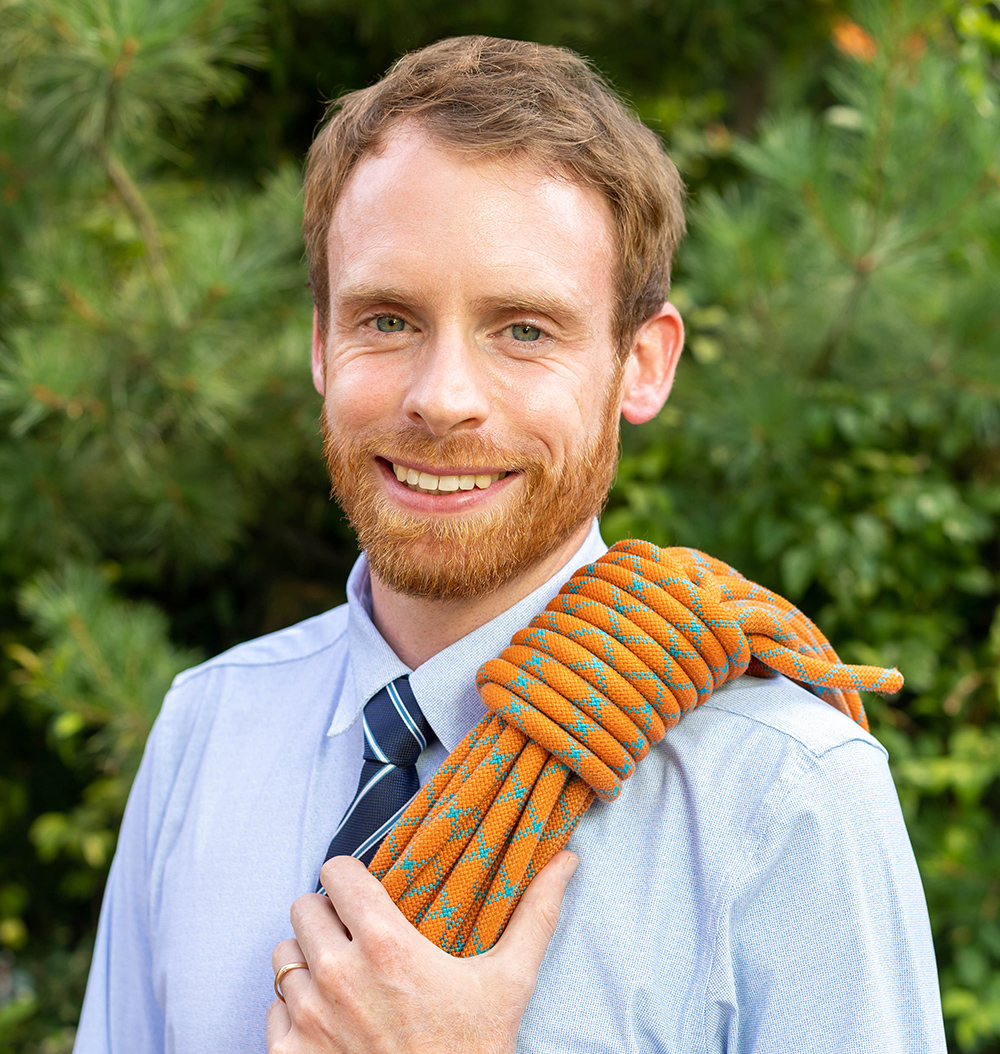
I’m from the UK, Bristol. I’ve lived overseas for 12 years and have explored many parts of the world. I’ve been at Dulwich College Seoul for just a year. I like to do outdoor activities when I’m not at work. I particularly enjoy rock climbing, trail running, and mountain biking. These activities go hand in hand with travel and allow me to really explore the areas that I visit.
Yes, I have. When I was about 18, I initially wanted to be a computer programmer and even did my A-level in computing. However, I soon realized I didn’t want a sit-down job; I wanted to explore the world. This led me to university, where I studied outdoor education because I desired a more active career that allowed me to explore more.
A defining moment for me was during school when we participated in the Duke of Edinburgh Award. We spent two days outside, planning our route, preparing the menu, and carrying our backpacks. Our instructor was fantastic—he was fun, engaging, and shared fascinating stories about places he had worked and visited. His enthusiasm and approach made a significant impact on me, and I knew I wanted to pursue a career in outdoor education to inspire others in the same way.
My fondest experiences have been days out rock climbing. I love being outside in a beautiful places with people you trust, pushing yourself and testing your limits. I learned about coaching styles, approaching people the right way to get more out of them, and the importance of care and attention.
Outdoor education programmes significantly contribute to students’ learning journeys by offering them opportunities to travel but to meet local people and have a host of new experiences. For example, they might go to schools, teach English, or run sporting games and team-building activities. This exposure helps them understand and appreciate different cultures and environments, fostering their development as well-rounded individuals and global citizens.
Additionally, outdoor education highlights the importance of fitness and encourages students to expand their comfort zones. This can build resilience, an essential attribute for personal growth. Through these adventures, students are able to craft stories about themselves, shaping their identities and developing a sense of self.
Start small and try to make going outdoors a regular part of life. Engage the younger members of the family in planning and allow them to choose where to go. It’s nice to record what you’ve done outdoors without using a mobile phone—classic activities like leaf rubbing, diaries, journals, drawing and creating stories are great with younger students. For the high school students who like to take part in more adventurous activities I would recommend using a qualified guide. There are lots of resources and ideas on YouTube for different hiking trails and adventures around Seoul.
During my work experience at an outdoor centre in England, I shadowed an instructor and got to know the group he had for the week. There was one student who was reserved and didn’t participate fully in all the activities . On the final challenge, which involved jumping off a cliff into the water, he suddenly overcame his fears due to the encouragement from the instructor and the group. When He came out of the water he was like a different person, full of confidence and with a huge grin from ear to ear. He had overcame something that was holding him back. It was all due to patience, care, and humour. Being outside is a challenge itself; the activity is secondary.
Leadership and teamwork are a vital part of outdoor education. Almost no part of a programme takes place within isolation meaning every interaction typically has a leader and the group. Challenges are often set for the students that would be nearly impossible to complete solo but with the support of the team these challenges can quickly be overcome.
When the weather is fine, most tasks can be quite simple. But when things go wrong or the weather is bad, you must rely on your team. Pitching a tent alone is difficult, but with a few people, it’s simple. The leadership that works outdoors is being kind and caring, getting everyone on the same page. The power of the team to raise morale should never be underestimated!
With 15 years of experience working with university students, corporate team building programmes, and school aged students, I have developed a keen understanding of what is age-appropriate for various groups. Here at Dulwich College Seoul , I am able to interact with the students every day, allowing me to get to know their personalities and build relationships. This familiarity enables me to tailor the next year’s activities based on memories and insights from previous programmes.
As for Korea, I love it here. The country offers a diverse landscape with coastlines, mountains, and hills, complemented by an excellent road network. The cycling infrastructure is among the best in the world, and the food is fantastic. These elements make Korea an outstanding place for outdoor education, providing ample opportunities for diverse and enriching experiences.
To become a qualified instructor in the UK, you go through many training courses and awards to be able to lead activities such as climbing and biking. The coaches on these courses were good at making it feel less like a lesson and more like discussions. I mimic that style, keeping things simple and doing them well. When outside with a group of students, I try not to rush and emphasise enjoying the place, people and process. A well-thought-out review of the day, programme or activity is essential to bring to life the learning that has taken place and allow the students to understand if these lessons can be taken to other parts of their lives.
My favourite memory is a Year 10 trip to Northern Thailand. We went white-water rafting, volunteered at a school, and helped build structures for a temple. The students were phenomenal, even without access to showers for six days. I also enjoyed Founder’s Day, seeing the entire community gathered with great music and student performances.
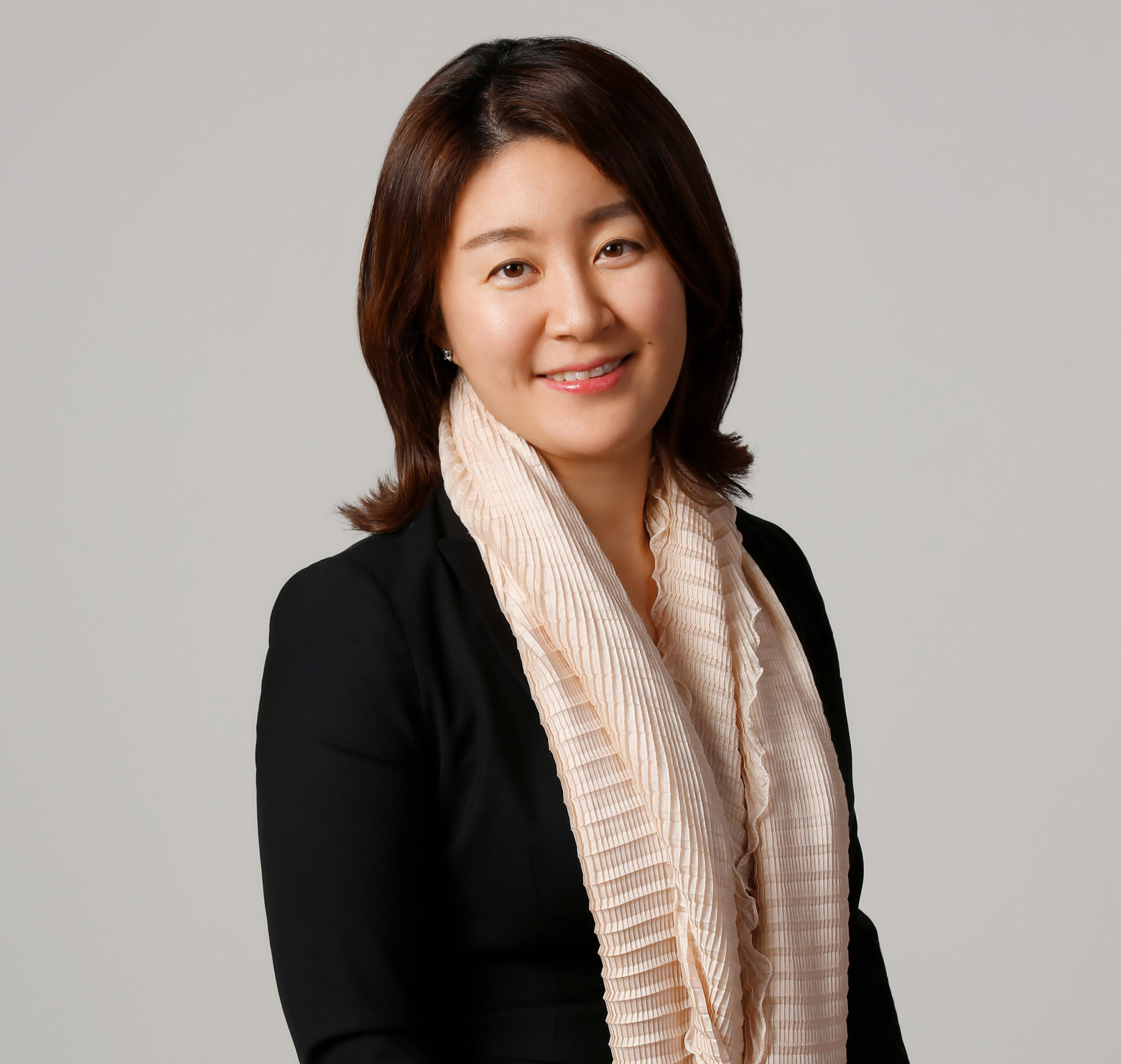
My name is Jem Kim, and my son is in Year 12. I spent about four years of my childhood in New York, where I picked up English while my father pursued his Ph.D. I studied Chinese in high school and majored in English literature in college. I worked as a reporter with the Korea Herald for many years, then transitioned to e-commerce, and later worked at Coupang, gaining skills for the startup sector.
I ran a startup called Brite Belly, selling ready-to-eat frozen plant-based meals with an Asian flavour, and won the Sustainability Award in 2022 from the European Chamber of Commerce. Most recently, I worked at an investment firm providing cross-border consulting for Korean companies investing overseas, particularly in Israel. Currently, I’m taking some time off from my career to be with my son as he prepares for university.
My primary motivation for taking on these roles stems from my desire to stay connected with my son’s life, especially as he becomes a teenager and communicates less frequently. My experience as an expat parent in Japan also motivated me to assist new families at our school. When I was invited to give a speech at an international school commencement ceremony, I realised the value of sharing experiences and insights from my journey as a parent and an entrepreneur. This inspired me to continue contributing to Dulwich College Seoul.
Taking on these roles has been a valuable learning experience for me. It allows for meaningful interactions with other parents, sharing perspectives, and learning from one another. For instance, I discovered that sports were a higher priority for some families than I had imagined, demonstrated by the passionate push to bring back early morning swimming. Similarly, parents showed great support for new ECA ideas like e-sports. This mutual understanding and interaction can help Dulwich become an even more innovative school.
Through these roles, my family and I have had the opportunity to meet and connect with a diverse range of teachers, students, and families, enriching our lives with their values and beliefs. This community engagement has been instrumental in fostering a supportive and inclusive environment for all.
I would like to believe that I helped bring more diversity into the ECA programme. For quite a long time, a large number of students had been wanting to include video gaming. Part of it was their sheer interest, and for the parents, it was about bringing gaming into the open and helping to hone skillsets that can be gained through gaming. Thanks to the support of other parents and the school, e-sports is now being considered as an ECA option.
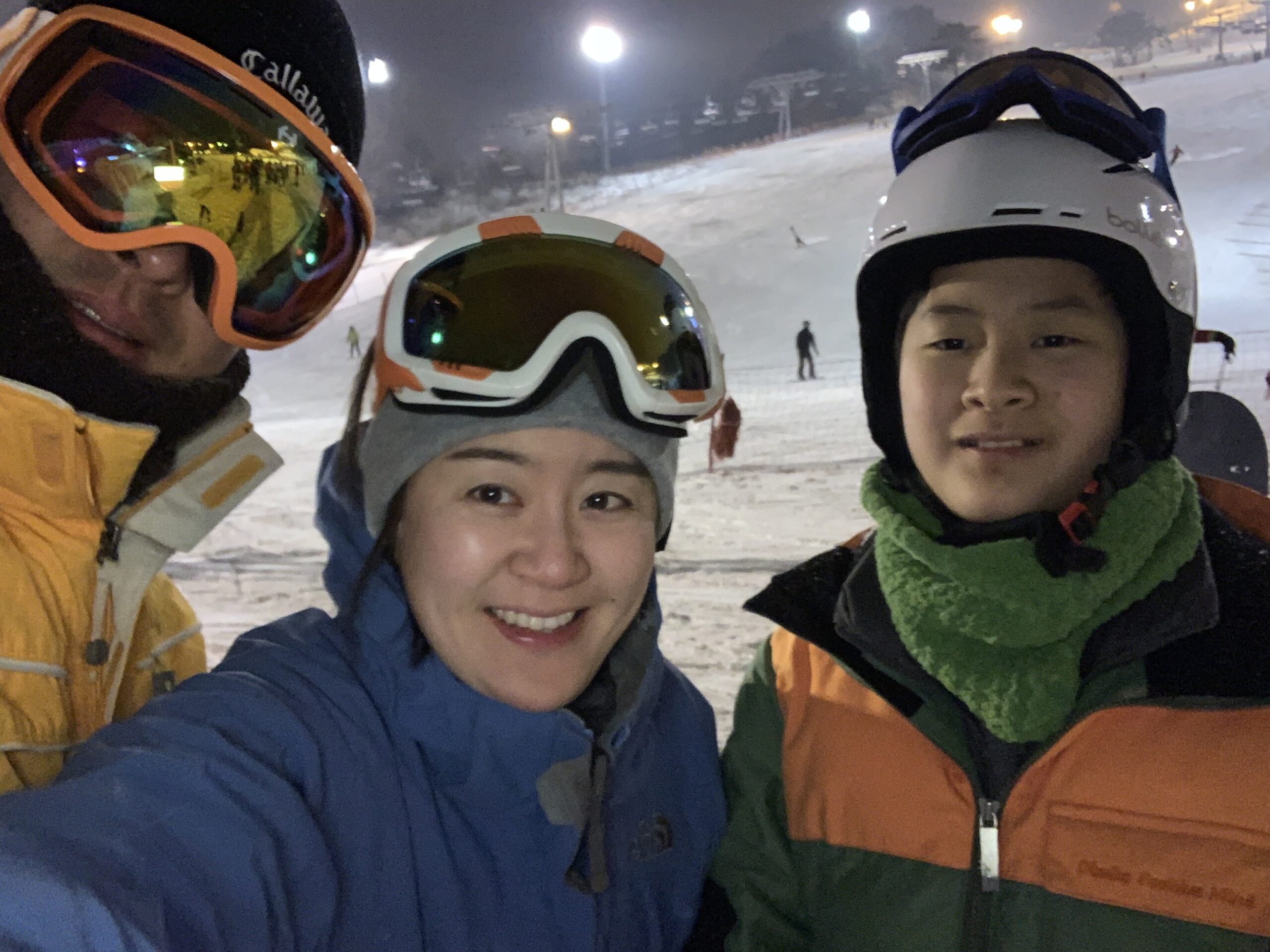
I was very young in the US, so you would think there wasn’t much influence, but it’s the opposite. By being able to speak another language – and one that is dominant in the world – you get access to a lot more information. I naturally loved to read, so a lot of the information I absorbed influenced me. I felt there was little freedom in Korea, and I vowed that if I ever had kids, I would be different. As for Japan, I was there as an adult. The international school my son attended there was great, helping both of us develop a global perspective. It taught us the importance of embracing diverse experiences and broadened our understanding of the world beyond Korea.
Mainly making sure I pick my battles. I saw an interview saying teenage years are difficult because unlike when they were a child and said they needed you, they are reluctant to express that need, and rather push you away – despite the fact that they probably need you the most. I’m just trying to remember that and be patient. It also helps to remember my own teenage years and realize he is actually much calmer than I was.
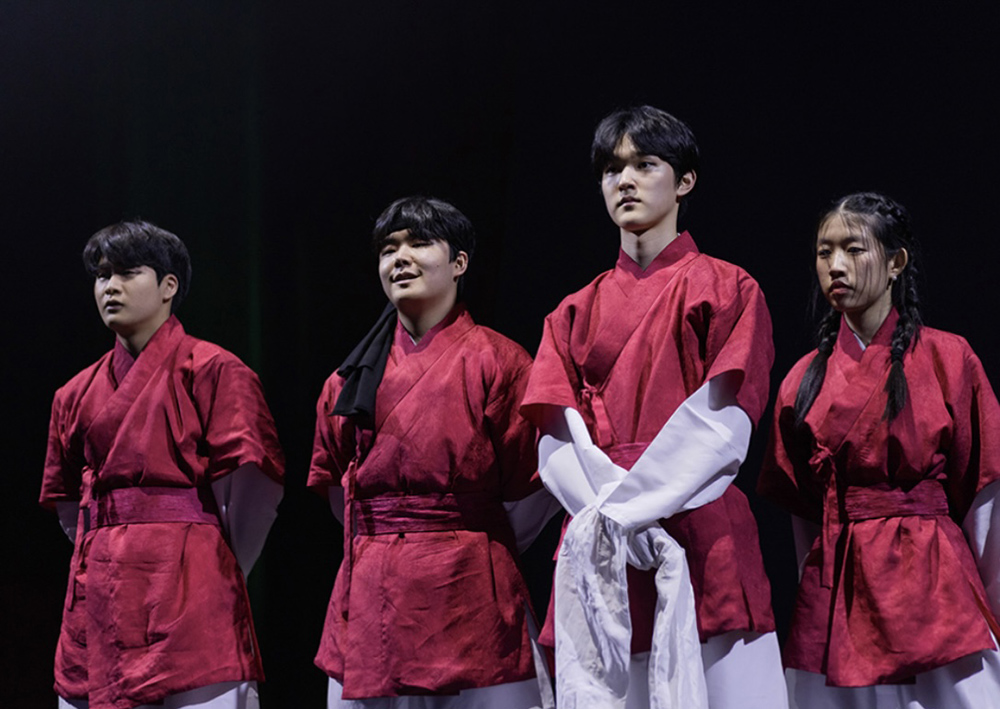
We try to be fair, although he may not agree. I don’t believe in hagwons (private academies). I learned long ago that whatever I push onto him, it will be a waste of money. Right now, we’re trying to prioritize health over anything else. It even trumps academic demands. He goes to the gym a couple of days a week, and plans on taking vocal lessons, because for him, it’s a great way to let off steam.
The IB programme is rigorous and offers long-term benefits, though it might be challenging for younger students to see immediate advantages. The small class size of 22 students fosters good friendships without unhealthy competition. Initially, my son struggled with the transition from the Korean education system to the IB curriculum, finding it difficult to make his own decisions. However, by Year 11, he started taking responsibility for his actions, making his own decisions, and understanding the consequences.
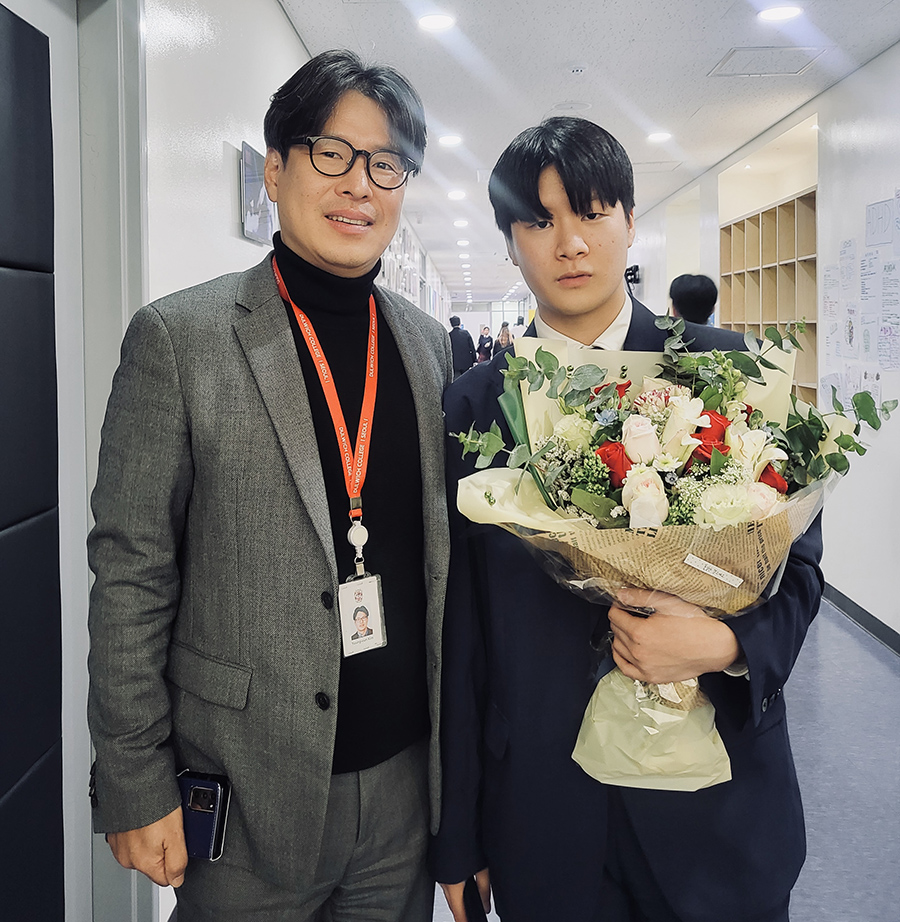
We first learned about Dulwich through a school tour in Year 6 while my son was attending a Korean school. Having lived in Japan for four years and attended international schools there, we found Dulwich to be the best fit due to its location and its IB curriculum, which was familiar to us from our time at St. Mary’s in Japan.
Adjusting to the Korean school system after St. Mary’s was challenging for my son, but he adapted well because he made many new friends. When we decided to return to the international school system at Dulwich, he initially found the transition challenging despite the school being a good fit. The situation was further complicated by the onset of the pandemic, which worsened almost immediately after we started at Dulwich, adding to the difficulties.
Dulwich has supported my son in numerous ways. The small student body allows teachers to pay close attention to each student, providing good feedback and personalized support whenever I have questions. The environment fosters strong relationships and individualized attention, which has been crucial for his development.
The school offers various workshop sessions that are great for students’ future planning, providing a good balance between Korean and international cultures. For example, the ‘Meet our Alumni’ workshop was insightful in learning about the global reach of Dulwich Seoul alumni. Additionally, the ‘Recent UCC Coffee Morning’ was an excellent opportunity to discuss and receive more information on schools in Japan, Singapore, and Hong Kong. The teachers were very receptive and provided valuable insights.
Dulwich’s holistic approach emphasise not only academics but also health and individuality. My son has become more focused on his overall well-being, thanks to the influence of his friends and the school’s environment. This holistic education has helped him develop into a well-rounded individual.
UPCOMING EVENTS

